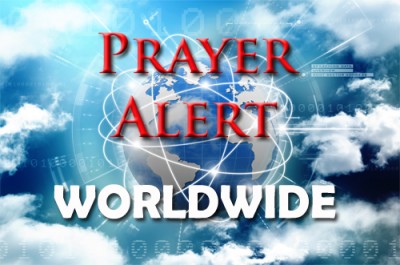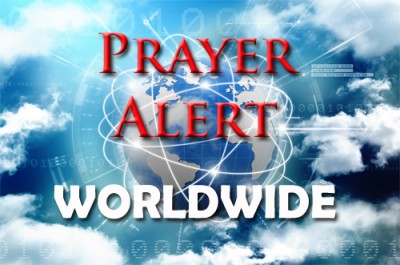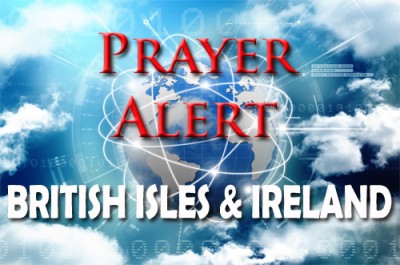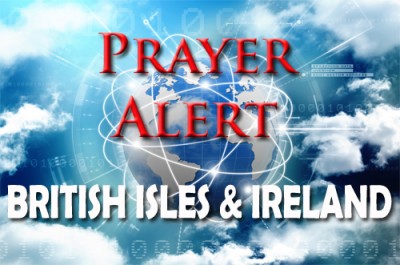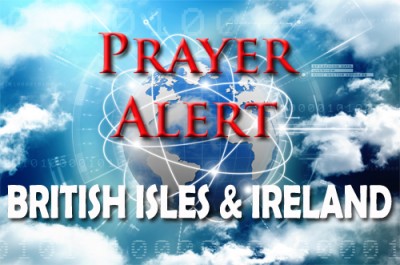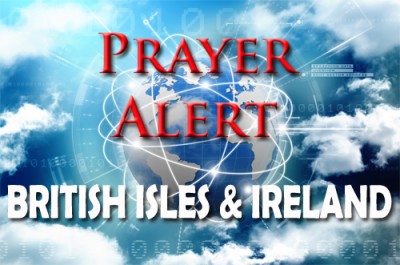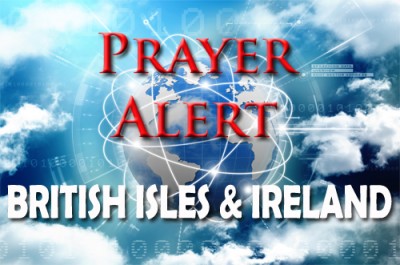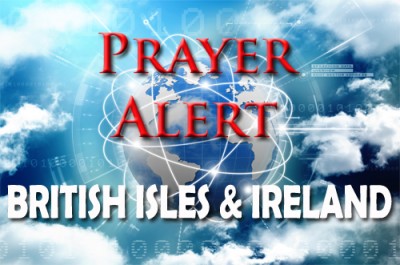Egypt: latest election results announced
11 Dec 2015Since the outbreak of the first uprising in Egypt almost five years ago, two presidential elections, three referendums over constitutions, and two parliamentary elections have been held. However, queuing at polling stations has not yet led to change. Recent elections experienced both violence and apathy. Egypt's branch of IS bombed a hotel in North Sinai where seven judges overseeing the parliamentary elections were staying. Polling was light (28%), with many Egyptians indicating distrust and a feeling of apathy over the political process. It is probable the liberal Free Egyptians party has won a majority of seats, with the Islamist Al-Nour party coming second. The world waits to see how President El-Sisi and this new legislature will fulfil his pledge to set Egypt on a ‘roadmap to democracy.’
An orphanage in India has been taken over by local authorities, after a court ruled that the young women who live there have been brainwashed. Christian Today reports that the Moses Ministries orphanage in Tiruchy, Madras, is run by the Christian Initiative for India, initially founded in Germany by the Rev Gideon Jacob who was born in India. The court ruled that Jacob and the orphanage had not obtained sufficient documentation before admitting some of its children, and, after taking them in, had brainwashed them. Jacob said the girls were brought to the orphanage by parents who did not want them, and this is why the orphanage does not have records such as date of birth and parents’ names. ‘When you bring a baby to give her away you are committing a crime for which you can be imprisoned,’ Jacob said. ‘If you give away your child you aren't going to give your telephone number.’
Fight to protect life continues
11 Dec 2015Last week we reported a lost legal challenge against two doctors performing abortions based on the sex of unborn baby girls. This week Christian Concern reports that even though the High Court refused a judicial review, Aisling Hubert and Merv and Nikki Kenward will appeal the rulings and continue to challenge the failure by the Director of Public Prosecutions to protect life from its beginning to its natural end. Explaining her decision to appeal, Aisling said, ‘Every human being is made in God's image. God delights in justice and demands that we practise it. He cares for the vulnerable. We must continue to challenge injustice and seek to uphold protections for unborn children, who cannot defend themselves. We continually see those responsible for pursuing justice turning a blind eye, perhaps hoping that the horrors of abortion will be swept under the carpet and the problems go away.’
Merseyside Youth Association service in Liverpool helps 16- to 25-year-olds who have been hit by benefit sanctions and are going hungry but feel uneasy about visiting foodbanks. They might go to their nan’s or to their friend’s and say ‘Can I borrow a few tins of beans?’ Each client is helped to complete a form asking why they are attending, and a counsellor is available for emotional support. Although the service is only in its second week, organisers say 36 young people have already used it, with debt and benefit sanctions the most common reasons. These young people are constantly worried about whether or not they’re going to be able to afford to feed themselves, as whatever money they do get has to go on rent. Research has shown that young people are disproportionately affected by benefit sanctions.
An inquiry into the place of religion in modern society, chaired by senior judge Baroness Butler-Sloss, has concluded that ‘Britain is no longer a Christian country and should stop acting as if it is.’ The report calls for British public life to be systematically de-Christianised, pointing to a decline in churchgoing and the rise of Islam and other faiths. It states that a ‘new settlement’ is needed for religion, giving more official influence to non-religious voices and those of non-Christian faiths. Thankfully Cabinet ministers called it ‘seriously misguided’ and the Church of England said it has been ‘hijacked’ by humanists. But the Church needs to stand and pray against some of the report’s suggestions such as abolishing the compulsory daily act of worship in school assemblies, cutting the number of Christian bishops in the Lords to give places to imams, rabbis and others, rethinking anti-terror policy, and ensuring students can voice radical views on campus without fear of being reported.
British lorry drivers in Calais in danger
11 Dec 2015It is being claimed that the migrant crisis is putting the lives of British lorry drivers at risk in Calais - and the government is being accused of not doing enough to protect them. Lorry driver Stephen Paul Morecroft has been describing his fear as he does his job to a BBC reporter, ‘They've got gas and knives and ammunition now. I don't know where it is going to end.’ Last month the boss of a British haulage firm claimed that the migrant crisis in Calais has descended into lawlessness and warned that it won't be long before someone is killed. One female driver said they attempted to open the doors to her vehicle and attacked the vehicle, leaving her very shaken. They are saying the situation is completely unacceptable and hauliers need someone they can go to in order to sort out this situation. To watch Mr Morecroft’s interview, go to: http://www.bbc.co.uk/news/uk-35047731
Whatever we feel about the Government's decision for military action in Syria, we must pray! Christians cannot underestimate the spiritual warfare we are now in - not demonising peoples or communities, but prayerfully intercepting the powers of darkness seeking to steal, kill and destroy. Dr Jonathan Oloyede is calling us to stand in the gap and pray protection, blessing and intervention over our streets, communities, towns and cities now that Great Britain is at war. As the Church, we are under the authority of our Lord to blow the trumpet and sound the alarm! We must ask for God to thwart the plans of those who are planning acts of terrorism within the UK and abroad, praying protection over those in our armed forces engaged in airstrikes and praying for our intelligence services, police and ancillary departments directly or indirectly involved in the safety of all peoples in the UK and the Republic of Ireland.
RAF continue to bomb IS targets
11 Dec 2015Royal Air Force aircraft have continued airstrikes against the IS terrorist network inside Syria and Iraq. RAF Tornados and Reaper drones have now been reinforced by a detachment of Typhoon fighters, which carry the same Paveway IV precision guided bombs as the Tornadoes. The deployment of the Typhoons and an extra two Tornados offers a significant increase in strike capacity to both the RAF component and the wider coalition air campaign. Pray for wisdom and accurate intelligence for those conducting these airstrikes and for protection of the innocent; for protection for the RAF pilots carrying out these raids; for the families of RAF personnel stationed in Akrotiri, Cyprus, and particularly for the families of the 300+ RAF personnel deployed at short notice, who remain at home in the UK.
